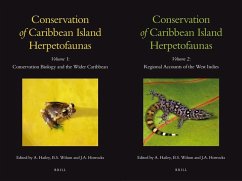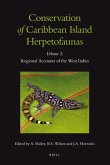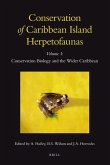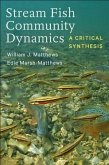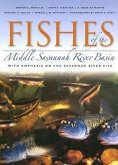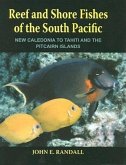Most of the islands of the Caribbean have long histories of herpetological exploration and discovery, and even longer histories of human-mediated environmental degradation. Collectively, they constitute a major biodiversity hotspot - a region rich in endemic species that are threatened with extinction. This two-volume series documents the existing status of herpetofaunas (including sea turtles) of the Caribbean, and highlights conservation needs and efforts. Previous contributions to West Indian herpetology have focused on taxonomy, ecology and evolution, particularly of lizards. This series provides a unique and timely review of the status and conservation of all groups of amphibians and reptiles in the region. Volume 1 introduces the issues affecting Caribbean herpetofaunas, gives an overview of evolutionary and taxonomic patterns influencing their conservation, and focuses on the relatively neglected amphibians and snakes. A major chapter describes the problem of invasive species of amphibians and reptiles. Three chapters then deal with islands of the Wider Caribbean that share many of the same problems but fall outside the West Indies biogeographic region. Volume 2 has 18 chapters providing regional accounts of the islands of the West Indies biogeographic region, from the Cayman Islands to Barbados and from the Bahamas to Grenada. The series will be useful to biologists and conservationists working in or visiting the Caribbean, and internationally as a summary of the current situation in this diverse and important region.
Hinweis: Dieser Artikel kann nur an eine deutsche Lieferadresse ausgeliefert werden.
Hinweis: Dieser Artikel kann nur an eine deutsche Lieferadresse ausgeliefert werden.

